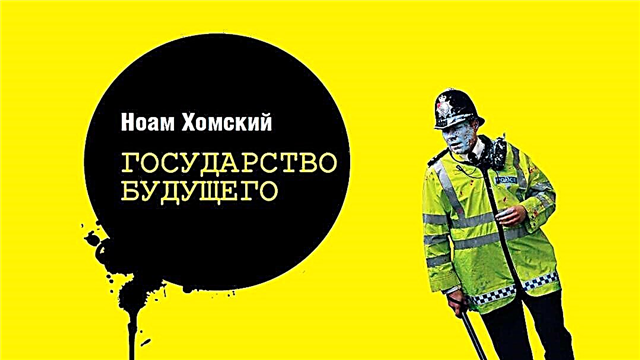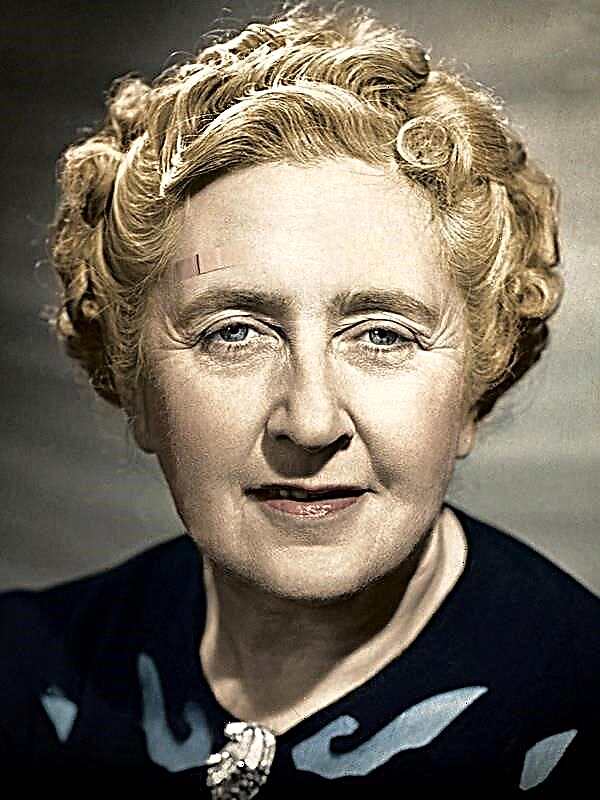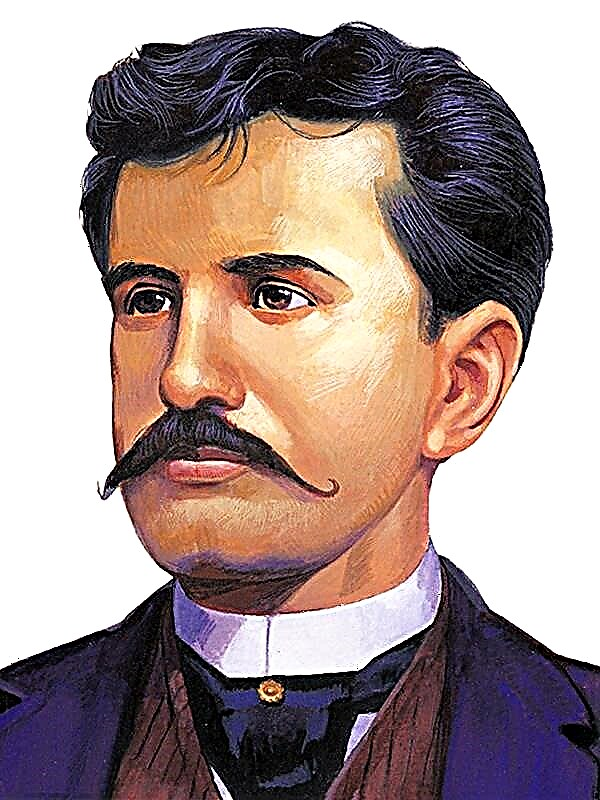The consultant benefits your clients
To become a lawyer or a doctor, you need to get admission to legal practice or complete residency. Anyone can call himself a consultant. And what does this word mean?
A consultant is a person with unique skills and talents that help his clients create an efficiency component. Consultants are useful to companies thanks to the specific skills and knowledge of the process that are acquired during study and work in a specialized field. This is the source of your experience, your professional “comfort zone” in which you are most competent.
Example. If you are an expert witness in a legal dispute, then you act as a specialized consultant.
General knowledge of the process is applicable to almost any environment and contains a set of highly effective methods.
Example. Bain & Company led strategic planning projects and, thanks to its experience, has become an expert in strategic processes. The company seeks to specialize in this area, as it is best versed in it.
For consultants, general knowledge of the process is often more valuable because it is applicable in different industries, which compensates for the lack of specific knowledge.
Promote yourself
Starting a business is not easy. The main thing is to attract the attention of potential customers. Organizations find consultants in two ways: word of mouth and an outstanding resume.
Word of mouth is the easiest and most effective method that brings customers directly to you. But the recommendations of those who have ever heard of your services are required, so the process does not depend on you. Despite this, rumors can be incredibly effective. Sometimes recommendations come from completely unexpected sources.
It is important to value each interaction with a potential client and tune in to a long-term relationship with him. Your success depends on communication with customers: you can always ask a satisfied customer to leave feedback and recommendations.
Support word of mouth with actual results. Keep track of your successes in order to gain a reputation and demonstrate your work.
Publications, speeches, interviews, websites and newsletters all add to the popularity. Start accumulating intellectual property as early as possible in order to replenish your resume and prove your reliability.
The best way to show that you will be useful to the business is to demonstrate what you have already done for others.
Take a look at the whole situation and don't let the work routine get in the way of success
Many consultants rate their work by the number of meetings held or reports written. In reality, quality comes down only to the result.
Consulting is results, not tasks. Not relying on the specific benefits for the client, you get hard and unproductive work.
Build such relationships with the client, in which only the final result is important, and not the method of achieving it. But you have to explain that your work will not be evaluated according to the time spent on the project.
Before making a proposal for consulting, agree on goals and evaluate results. This will require collaboration. The best consultants work closely with their clients: the benefits that you bring may vary depending on the specific needs of the client.
Example. An interventionist fills organizations with highly effective skills, and an independent expert solves many problems, but only one who works closely with a client is able to do both at the same time.
Demonstrating flexibility, consultants bring the greatest value to the client, build strong and lasting relationships and receive the necessary recommendations.
Be clear about your strategic goals.
Each consulting firm has a unique driving force that determines its strategic goals.
Companies often formulate a mission like this: "We want to help customers achieve the best results" or "We want to become the best company in our industry." But such statements are too vague. A well-formulated mission articulates specific goals, objectives and intended results.
Example. To improve the quality of customer service, the strategy may sound like this: "We will hold meetings using customer reviews, creating visual changes in behavior at work." Or, if you specialize in process optimization: “We help customers increase productivity by analyzing needs, improving communication and joint decision-making in the organization.”
The secret is to show how you benefit by highlighting your company against the rest.
There is no profession with a steeper learning curve than consulting. With the acquisition of experience and skill, the benefit to customers increases, which justifies the increase in fees.
Each collaboration rewards you with a valuable new contact or strengthens customer relationships. Therefore, always benefit from contracts. And if the company does not meet your strategy (the project does not bring the proper reward, is boring or does not help you develop), do not take it.
Sometimes you have to refuse customers
To develop, you need to abandon bad customers.
Consulting firms do not work like other enterprises.
Example. Soft drink manufacturers are trying to sell the product to as many people as possible.
In order to grow financially, improve customer relations and gain experience, a consultant should refuse less profitable transactions.
As you gain experience, your fee should also grow. This is useful not only for the wallet, but also for reputation. If you become famous as a "cheap alternative", agreeing to any job, you will receive the appropriate salary and reputation.
The quality of work should be higher than quantity, that is, one project for $ 50,000 is always more valuable than ten for $ 5,000. The time and cost of a large and small project are almost the same, so large projects are more profitable.
The benefits that you can bring increase with the growth of experience, which is only reasonable if the prices are increased appropriately. Therefore, include in the strategic objectives the conclusion of more expensive transactions.
Every two years, review all contracts and allocate 15%, which can be waived, making room for more profitable ones.
If you do not develop, then success will come to naught. Trying to expand your business, you will grow steadily, increasing your wealth.
Consulting is built on relationships, so learn how to get people to yourself
The main thing for a consultant is to be competitive and find your niche. Build your image and build relationships. People constantly "judge a book by its cover." Therefore, a personal brand is needed, which will be loved and recognized.
Image is part of your brand. Buy some expensive costumes and accessories and act like a pro. Try to stay natural, avoid strong aromas and tanning beds.
But the calling card is not your face, but your name and logo. Always put a logo on your work. Potential customers should immediately recognize your documents so as not to look for them for a long time.
A business must be legally registered, otherwise you will be considered an amateur, not a professional, and you will miss many profitable opportunities.
It is important to consider how you stand out: specialization and the provision of special services increase competitiveness, but only your relationship with the client will determine you as an indispensable professional or as a one-time consultant.
An ideal relationship is when the client trusts the consultant, allowing him to make decisions independently, with due responsibility and in the interests of the client.
You can gain customer confidence by providing him with your personal phone number. The ability to call you at any time provides the client with a sense of security and close partnership.
And do not be afraid to defend your position, even when the company's internal policy threatens the success of the project. Good customers will understand that you are acting in their best interests and will trust you more.
When negotiating, focus on benefits and partnerships.
A consultant will not succeed if he cannot convince the client of his usefulness. There are a number of obstacles that make negotiations difficult. At the negotiating table, you will meet with the “gatekeeper” - the person who is tasked with refusing. Never enter into negotiations with the gatekeeper, but insist on the presence of the person making the final decision and writing the checks.
Four main reasons for refusal: no money, irrelevant, no need and no trust.
- No money or not relevant: focus negotiations solely on benefits. Demonstrate how customer problems will worsen over time and explain how you can help. Then your services will seem relevant, and the size of the fee - reasonable.
- No need: "the essence of marketing is to create a need." Clients know exactly what they want, but do not always understand what they really need. Identify their needs, show why they need these things, and then explain how you will help.
- No trust: if there is no relationship between you and the client, then there is no trust. To develop this relationship, identify the problems that concern the client and provide feedback, positioning yourself “as a potential partner, and not as a sales manager or sneak”. Reassure the client that you are acting in his best interest.
If you can overcome these obstacles, the client will say yes.
Charge for the result, not for the time spent.
It is difficult to express consulting services in monetary terms. Many make the mistake of setting an hourly rate. It is unproductive and even unethical. The time spent on the project is not valuable to the client. He is only interested in the result.
If your fee depends on time, a difficult situation arises: the client wants to get a quick and effective result, and you want to work on the project as long as possible. Payment based on the results and short term of the project will satisfy both the needs of the client and your need for personal, professional and financial growth.
Customers do not care about current tasks. Tasks are repeated, each time losing their value, and the significance of the results grows as they accumulate. When setting prices, please note:
- qualitative and quantitative advantages that you can offer the client;
- their impact on customer reputation;
- the amount of energy needed to complete the project;
- the scale of the project, the number of people who will have access to your services, and the approximate duration of the project.
To get the fee you deserve, you need to convince the client of the value of your services, and then just ask for the proper fee. Many do not know how to convincingly demand large sums of money. Learn in front of the mirror to confidently pronounce the phrase: "The size of the commission will be $ 50,000."
Do not be fooled by the rapid take-off and do not overload yourself
Most consultants live from paycheck to paycheck. Such a narrow vision makes it difficult to see the signs of difficult times.To remain successful, carefully monitor the flow of transactions, their volume and sources.
The flow of transactions reflects:
- long-term, short-term and urgent projects;
- projects from regular and one-time clients;
- draft recommendations.
In the flow, it is important to allocate enough time for planning and marketing.
Since the policy of most companies does not allow you to conclude contracts for several years, the flow usually covers a 12-month period. So you will see a realistic estimate of annual cash flow and profits.
But a poorly structured flow of transactions can lead to many problems. You will begin to acquire new, short-term contracts, often leading to unprofitable cooperation, small fees and a lack of growth opportunities. If the projects in the flow are unevenly distributed and accumulate at some point, you will have to hire other consultants to manage to complete the entire amount of work, which will also reduce your income and growth opportunities.
It is necessary to constantly monitor the flow of transactions. If you notice a lack of prospects and a lack of regular orders from existing customers, it is possible that your marketing is ineffective or you have not created a strong relationship with customers.
Diversification and investment are the best defense in times of crisis
Due to the 2008 crisis, many consulting firms suffered losses. Others developed their business, despite economic difficulties. They invested instead of lowering costs, expanding the range of services and strengthening customer relationships. That is, with the right strategy, you can use the crisis to your advantage.
Regardless of the economic situation, diversify your services to serve industries that are booming in both boom and crisis.
Example. Industries such as pet care and healthcare are stable during the economic downturn. Do not lose sight of this.
You can protect your business by expanding the market geographically. This will reduce the damage from regional economic downturns and protect you from local competitors. If you really find yourself in a difficult situation, you can move away from working with clients and pay attention to other areas - mainly marketing.
Example. Start phoning old customers and partners to stay in touch, write articles for a magazine, or give reports on crisis issues.
Most competitors withdraw investment in a crisis, and customers immediately see a drop in the quality and cost of their services. Do the opposite - and take their place, showing customers their indispensability.
Think ahead and constantly research the client’s business to become indispensable for him
Build long-term relationships with customers to maximize commissions and maintain full employment. To do this, you need to think in the long run, say, by providing discounts for special occasions in order to learn more about the organization of the client and become irreplaceable.
With each new project, your value will grow, because the benefits brought will accumulate, and the organization will provide you with more confidential information. And having studied in more detail the culture and business of customers, you can take the initiative by independently proposing projects in areas where you will benefit. So you increase your own income.
To gain this knowledge, start the project by examining the organization’s work and the opinions of various stakeholders and officials about it. Do not stop researching throughout the project, but first meet the key personnel, as well as middle and lower level employees. Get an idea of them and find out how they use available resources. Try also to accompany the sellers "in the fields" or talk with large customers to find out their opinion.
Having successfully completed several tasks and gained knowledge about the organization, you will build strong relationships with the client. According to the author of the book, “you will become a competent specialist whose contribution to the company combines individual abilities, knowledge about the organization and personal relationships with top management.”
True wealth - free time from work
In an effort to become financially successful, many counselors give out only weekends for families. But real wealth is free time, and money is only a means of achieving such a life. Business growth can reduce your wealth.
Working "like a damn", you will not become the best consultant. A balanced life gives you more energy, improving your productivity and helping customers see you as a person and as a professional.
There is no clear line between professional and personal life. Create a balance between them:
- Eliminate timelines and do business when "you are driven by a rush." If you want to complete several projects on Sunday and go to the beach on Monday - fine. You are your own boss, use the time as you please.
- The secret to living a full life is diversity. Do not stop learning and trying something new. Avoid isolation, seek inspiration from other people, and help them to properly prioritize your life.
- Stay healthy and fit and pamper yourself regularly. A healthy mind increases your confidence and curiosity and makes you more stress-resistant.
The most important thing
Consulting is based on business relationships. Your methods or degree are not important to the client. Only the result matters. Remember that true wealth is your free time, not money.
Lead the results of the work. Since customers are not interested in the number of completed tasks, but in the final result, calculate your fee based on the benefits you have brought, not the hours spent.
Put relationships above money. Although a $ 50,000 deal is very important, it’s best to build a business relationship that will bring you a few $ 50,000 deals. Your success depends on how others perceive you.












